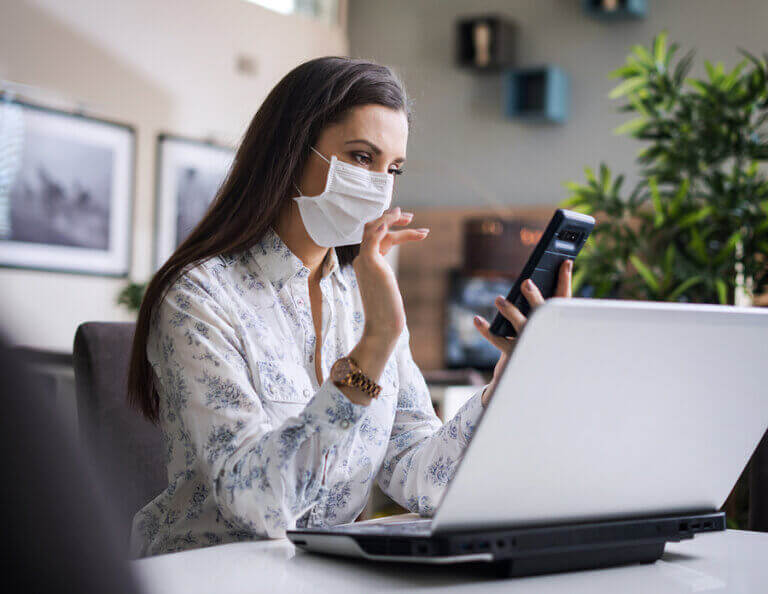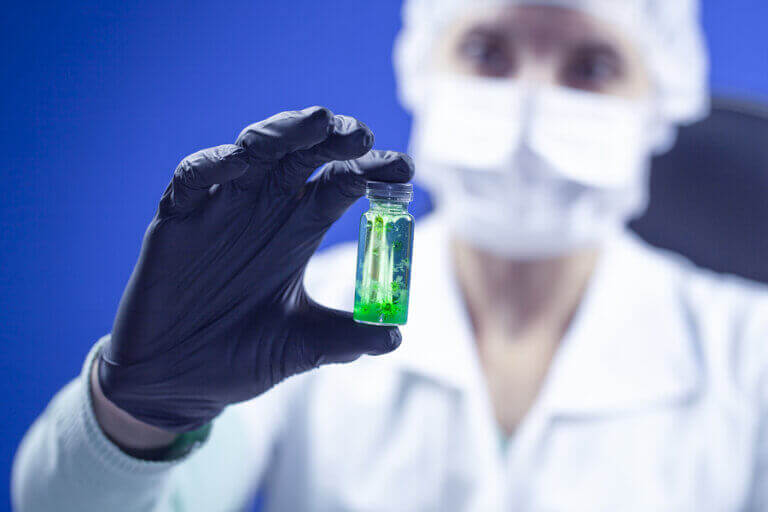Obligation for Athletes to Undergo Coronavirus Testing

The COVID-19 pandemic makes no distinction between gender, age, profession or religion, and of course, athletes are no exception either. New names of elite athletes who have undergone coronavirus testing and tested positive emerge every day. In the vast majority of cases, there are no major consequences.
These confirmed cases are making it mandatory for athletes to undergo coronavirus testing and thus rule out or confirm a possible contagion. The reason behind this is to take maximum care of the health of these superstars, and the health of those around them as well.
Coronavirus testing for elite athletes
The vast majority of elite athletes have had to undergo coronavirus testing. In some cases, this obligation is preceded by contact with an infected person or by simply sharing sports facilities with another team.
Coronavirus transmission levels have skyrocketed worldwide. Unfortunately, this has made it far more difficult to contain the virus, and therefore the chances of contracting it are considerably higher.
In the case of elite athletes, it’s mandatory for most of them to undergo the test and rule out possible contagion. In other cases, they may have to go through such examinations even if they haven’t been exposed to the virus, or at least it seems that way.
The reason behind that obligation is very simple: to take the best care of everyone’s health. So far, the vast majority of athletes who’ve tested positive for COVID-19 have complied with home rest, followed their doctors’ instructions and recovered successfully.

What is coronavirus testing?
Coronavirus can be difficult to diagnose on many occasions. In practice, it generates symptoms that we can easily confuse with a common cold, flu or a respiratory condition.
For this reason, a test is necessary to differentiate it from other diseases. This type of analysis detects the genetic code of the virus.
The test to detect the coronavirus is neither bothersome nor painful. In fact, it’s very simple and quick; after that, you must wait one or more days to receive the results. The specialist takes sputum or respiratory secretions with a swab to get the sample.
It’s a fast and completely painless process. Another way to collect samples is though a nasopharyngeal lavage or with an aspirate; these methods can be a little more bothersome, but not painful.
After collecting the samples, they are sent to the lab. In general, the result should come back in a few hours, but due to the general collapse of the health systems, it can take between one or several days.
Of course, the faster the result is obtained, the faster the patient will receive their treatment, making the recovery much easier.
Blood test
In addition to the methods we described above, China has developed a system to detect the virus through a simple blood test. The goal is to detect the antibodies that the human body generates to fight COVID-19.

The test is also quick and the discomfort is very low. However, the World Health Organization (WHO) stresses that it’s not completely reliable. Why is that?
Although one or two results come back negative, it doesn’t mean that the person doesn’t have the virus. Therefore, the vast majority of countries are using the methods we previously described, since they have completely reliable results.
Another interesting aspect about the virus is that not everyone who is infected has the same typical symptoms. This was the case of Rugani, the Juventus defender who had no fever. Manolo Gabbiadini, from Sampdoria, did present general malaise and fever days before the doctors diagnosed him with the virus. Fortunately, both players have made a successful recovery.
Quarantine for positive cases
Most elite athletes have already undergone coronavirus testing. However, they should stay at home and avoid exposing themselves to possible contagion, for their own health and the health of everyone around them.
The coronavirus test is very simple, the complicated part is the recovery. During this period, it’s essential to follow the instructions of the doctor in charge of each case. In the meantime, athletes resort to continue with their workouts at home in order to not lose their fitness levels.
The COVID-19 pandemic makes no distinction between gender, age, profession or religion, and of course, athletes are no exception either. New names of elite athletes who have undergone coronavirus testing and tested positive emerge every day. In the vast majority of cases, there are no major consequences.
These confirmed cases are making it mandatory for athletes to undergo coronavirus testing and thus rule out or confirm a possible contagion. The reason behind this is to take maximum care of the health of these superstars, and the health of those around them as well.
Coronavirus testing for elite athletes
The vast majority of elite athletes have had to undergo coronavirus testing. In some cases, this obligation is preceded by contact with an infected person or by simply sharing sports facilities with another team.
Coronavirus transmission levels have skyrocketed worldwide. Unfortunately, this has made it far more difficult to contain the virus, and therefore the chances of contracting it are considerably higher.
In the case of elite athletes, it’s mandatory for most of them to undergo the test and rule out possible contagion. In other cases, they may have to go through such examinations even if they haven’t been exposed to the virus, or at least it seems that way.
The reason behind that obligation is very simple: to take the best care of everyone’s health. So far, the vast majority of athletes who’ve tested positive for COVID-19 have complied with home rest, followed their doctors’ instructions and recovered successfully.

What is coronavirus testing?
Coronavirus can be difficult to diagnose on many occasions. In practice, it generates symptoms that we can easily confuse with a common cold, flu or a respiratory condition.
For this reason, a test is necessary to differentiate it from other diseases. This type of analysis detects the genetic code of the virus.
The test to detect the coronavirus is neither bothersome nor painful. In fact, it’s very simple and quick; after that, you must wait one or more days to receive the results. The specialist takes sputum or respiratory secretions with a swab to get the sample.
It’s a fast and completely painless process. Another way to collect samples is though a nasopharyngeal lavage or with an aspirate; these methods can be a little more bothersome, but not painful.
After collecting the samples, they are sent to the lab. In general, the result should come back in a few hours, but due to the general collapse of the health systems, it can take between one or several days.
Of course, the faster the result is obtained, the faster the patient will receive their treatment, making the recovery much easier.
Blood test
In addition to the methods we described above, China has developed a system to detect the virus through a simple blood test. The goal is to detect the antibodies that the human body generates to fight COVID-19.

The test is also quick and the discomfort is very low. However, the World Health Organization (WHO) stresses that it’s not completely reliable. Why is that?
Although one or two results come back negative, it doesn’t mean that the person doesn’t have the virus. Therefore, the vast majority of countries are using the methods we previously described, since they have completely reliable results.
Another interesting aspect about the virus is that not everyone who is infected has the same typical symptoms. This was the case of Rugani, the Juventus defender who had no fever. Manolo Gabbiadini, from Sampdoria, did present general malaise and fever days before the doctors diagnosed him with the virus. Fortunately, both players have made a successful recovery.
Quarantine for positive cases
Most elite athletes have already undergone coronavirus testing. However, they should stay at home and avoid exposing themselves to possible contagion, for their own health and the health of everyone around them.
The coronavirus test is very simple, the complicated part is the recovery. During this period, it’s essential to follow the instructions of the doctor in charge of each case. In the meantime, athletes resort to continue with their workouts at home in order to not lose their fitness levels.
All cited sources were thoroughly reviewed by our team to ensure their quality, reliability, currency, and validity. The bibliography of this article was considered reliable and of academic or scientific accuracy.
- FIFA and WHO launch five key tactics to tackle coronavirus. 16 de marzo de 2020. Sitio oficial de la FIFA. https://www.fifa.com/who-we-are/news/fifa-and-who-launch-five-key-tactics-to-tackle-coronavirus
- Gobierno de España. Salud publica. 2020. Procedimiento de actuación frente al coronavirus. Extraído de: https://www.mscbs.gob.es/profesionales/saludPublica/ccayes/alertasActual/nCov-China/documentos/Procedimiento_COVID_19.pdf
This text is provided for informational purposes only and does not replace consultation with a professional. If in doubt, consult your specialist.








